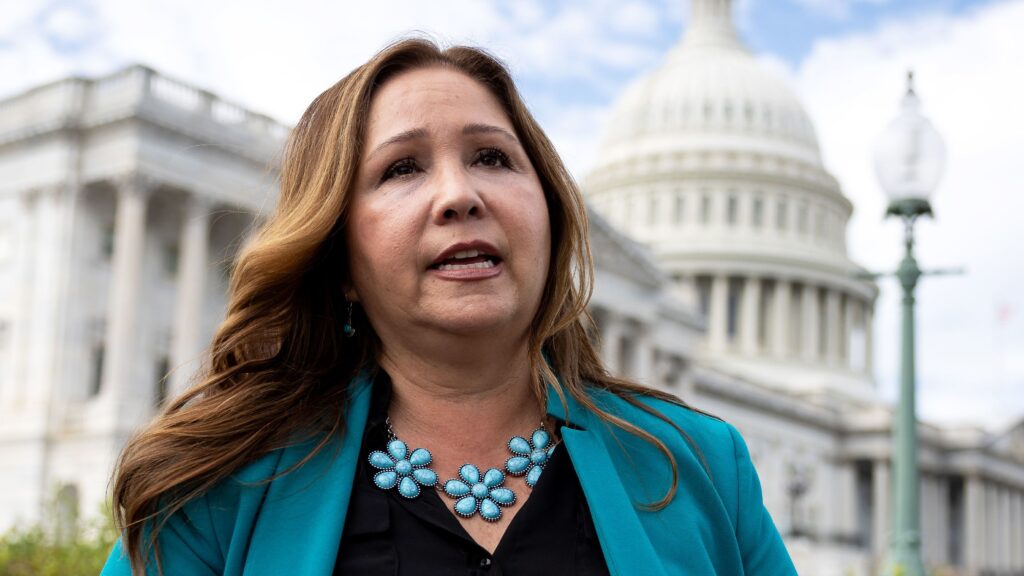WASHINGTON, D.C. — Arizona’s Attorney General Kris Mayes has filed a lawsuit against U.S. House Speaker Mike Johnson over his refusal to seat Adelita Grijalva, a newly elected Arizona congresswoman, citing the ongoing government shutdown as the reason.
In the filing on Tuesday, Mayes and her legal team argued that “someone duly elected to the House may not be denied her rightful office simply because the Speaker has decided to keep the House out of ‘regular session.’”
Speaker Johnson has defended his decision, pointing to what he called the “Pelosi precedent.” He noted that when Republicans previously won special elections, then-Speaker Nancy Pelosi waited until lawmakers returned from recess before administering oaths of office. Johnson told reporters Monday, “Grijalva won her race after the House had already gone out of session. I will administer the oath on the first day we come back [to] legislative session. I’m willing and anxious to do that.”
Moments after the lawsuit was filed, Johnson dismissed the effort as “patently absurd” and accused Mayes of seeking publicity. “We run the House. She has no jurisdiction. We’re following the precedent. She’s looking for national publicity. Apparently she’s gotten some of it, but good luck with that,” he said.
Grijalva, meanwhile, expressed a desire to resolve the impasse directly with Johnson before returning to her district Thursday. In an office interview, she said, “I am going to try to schedule an appointment and just sort of sit down to say this back and forth is not good. It’s not healthy. It’s, you know, a clap back here and there. It’s not something that I want.” She added that she has not spoken with Johnson since winning the election 28 days ago.
The lawsuit contends that the Constitution does not grant the Speaker—or anyone else—the authority to delay a duly elected member’s seating. It further alleges that Johnson’s refusal to swear in Grijalva is politically motivated, aimed at preventing a petition forcing a House vote on Jeffrey Epstein-related records and strengthening his leverage in budget negotiations.
“If the House wishes to remove a member for other reasons, it must first seat the member, then expel by a two-thirds vote,” the lawsuit states. It emphasizes that while the Constitution requires Representatives to take the oath, it does not specify who must administer it. Mayes argues Johnson has been in the Capitol and has offered no legitimate reason for not administering the oath.
The legal filing also highlights that Grijalva’s delayed swearing-in harms both her and the citizens of Arizona, leaving them without full representation in Congress. Mayes is requesting the court to allow another qualified official to administer the oath if Johnson refuses.
The case has been filed in Washington, D.C.’s federal court, and it is expected to become a focal point in the ongoing debate over congressional authority and government shutdowns.

